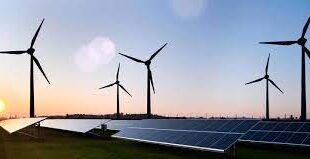The UK Government has announced more than half a billion pounds of new investment into low carbon technologies.
Around £400 million of this total is dedicated to boosting electric vehicle (EV) charging infrastructure across the country. with the first £70 million allocated to deploy 3.000 charge points. which would more than double the current UK total. bringing it up to 5.000.
This new finance follows £1.5 billion of support intended to boost the uptake of EVs and make cleaner vehicles more accessible. as part of the journey towards phasing out petrol and diesel vehicles by 2040.
The government has also unveiled £142.9 million of investment in other green projects – around £31.5 million of this will be spent on developing pioneering technologies to remove greenhouse gases from the atmosphere. while £22 million will be spent researching new kinds of air pollutants from sources such as air fresheners and cleaning products.
Roughly £47 million of the funding will be used to make national diets more healthy and sustainable. through changes in production. manufacturing. retail and consumption. with £30 million to be spent on creating innovative ways to reuse and recycle materials across the food. water. textiles and electronics sectors.
Around £12.4 million of the funding pot will be used to ensure the UK makes the most of the societal and economic benefits available through the better management of its marine resources.
Exchequer Secretary Simon Clarke said: “We are driving ahead with plans to make travel greener while backing British innovation and technology.
I am delighted to announce this funding today that will more than double the number of rapid charge points for EVs on our roads. Britain already boasts one of the biggest networks of charging infrastructure in Europe and soon we will have the fastest thanks to this investment.
This is the latest in our proud record on climate change –having slashed emissions by over 40% since 1990. whilst simultaneously growing our economy and setting an ambitious target for net zero emissions by 2050.
 Iran Energy News Oil, Gas, Petrochemical and Energy Field Specialized Channel
Iran Energy News Oil, Gas, Petrochemical and Energy Field Specialized Channel




